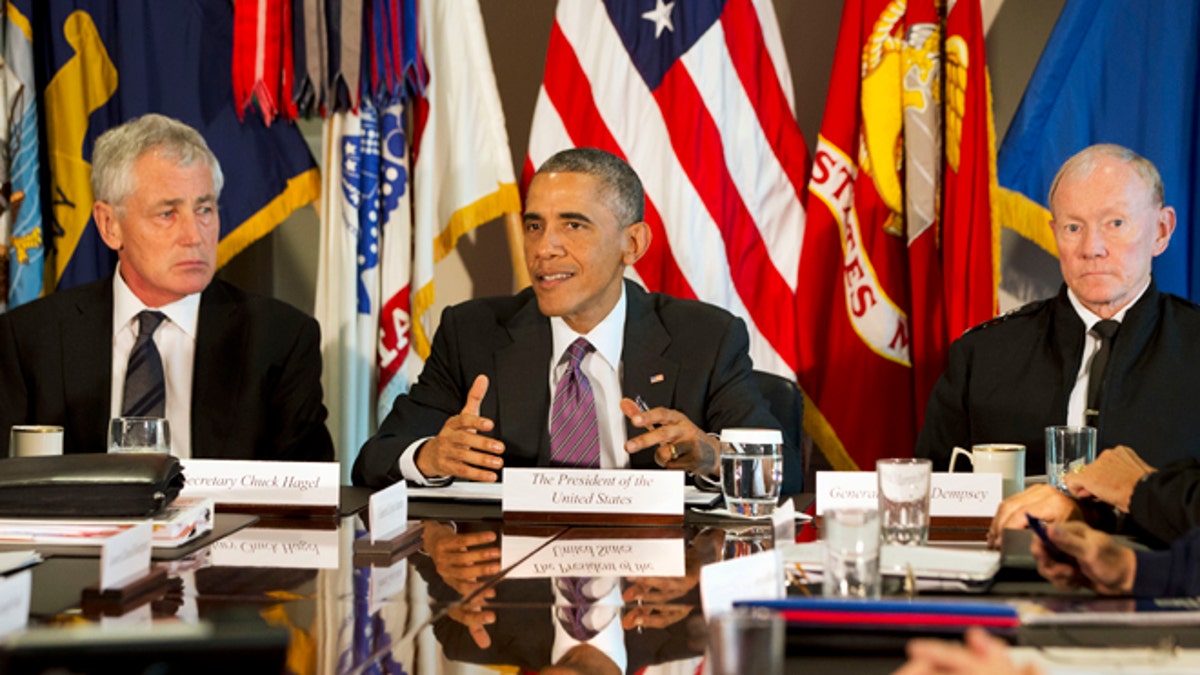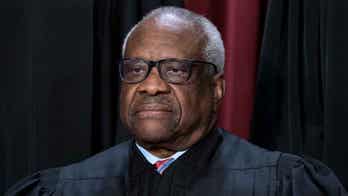
In this Wednesday, Oct. 8, 2014 photo, President Barack Obama, flanked by Defense Secretary Chuck Hagel, left, and Joint Chiefs Chairman Gen. Martin Dempsey, speaks to the media at the conclusion of a meeting with senior military leadership at the Pentagon. (AP)
America’s foreign policy increasingly has been micromanaged by the Obama White House, effectively slowing the U.S. response to crises including jihadists’ rise in Syria, according to a detailed report by Reuters.
The report, based on interviews with more than 30 current and former officials across multiple administrations, said the White House often gives scant consideration to policy input from the Pentagon and State Department. Instead, according to Reuters, decisions large and small are made by the White House and its National Security Council, which has almost doubled in size since the George W. Bush administration.
The report suggests President Obama’s inner circle played a key role in delaying action in Syria – by repeatedly refusing to arm moderate rebels inside the country or engage in military action.
This changed last month when Obama ordered airstrikes in Syria, as well as Iraq, to fight the Islamic State.
Since that reversal, former Defense Secretary Leon Panetta has released his memoir and been highly critical of the president’s reluctance to get engaged in Syria earlier.
The Reuters report quotes Michele Flournoy, former under secretary of Defense for policy, saying the centralization of power in the White House has created a “choke point.”
““There’s only so much bandwidth and there’s only so much they can handle at one time. So, things start to slow down,” she said.
A former State Department envoy on Syria also told Reuters Obama considers himself “analyst in chief,” in addition to commander in chief.
Ben Rhodes, deputy national security adviser, defended the president’s approach, noting that aside from troops in the field, only the president assumes “the risk of the cost of action.”




